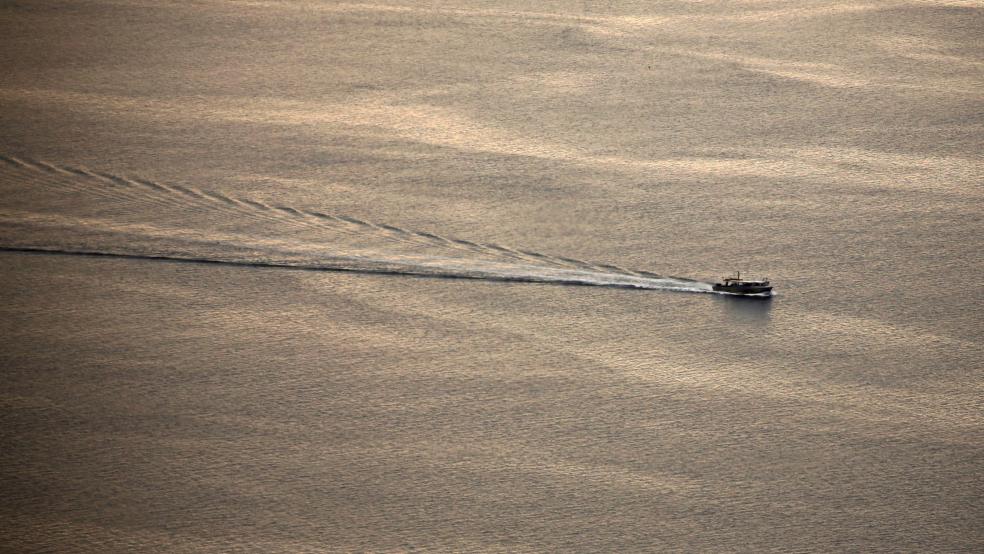WASHINGTON (Reuters) - President Donald Trump's proposal to defund programs to clean up the Chesapeake Bay and the Great Lakes, two of the country's largest water systems, brought scorn on Thursday from a bipartisan array of lawmakers who vowed to fight the cuts.
Members of Congress said the proposal to wipe out Environmental Protection Agency funds to clean up the Great Lakes and the fragile Chesapeake Bay ecosystem threatened the environment as well as tens of billions of dollars in economic benefits.Senator Rob Portman, a Republican of Ohio, rejected the proposed spending cut for the Great Lakes program."I have long championed this program, and I'm committed to continuing to do everything I can to protect and preserve Lake Erie," he said in a statement, referring to the Great Lake that forms his state's northern border.Without specifically addressing the clean-up program cuts, White House Budget Director Mick Mulvaney said the administration's proposed 31 percent reduction in EPA spending reflected the president's view that a big shift was needed in government policies on the environment. "You can expect reductions in the EPA that don't line up with the president's view on things like global warming and alternative energies," Mulvaney told reporters during a briefing on the budget plan, which would slash the EPA budget by $2.6 billion. Trump has called climate change "a hoax."The White House did not immediately respond to a request for comment about lawmakers' criticism of the programs' elimination. Trump's proposal would eliminate $73 million a year that six states and the District of Columbia receive to clean up the Chesapeake, the largest U.S. estuary. The bay is slowly recovering under a federal-state plan to reduce inflows of nitrogen, phosphorus and sediments from farms and urban development.Also on the block is the Great Lakes Restoration Initiative, which has disbursed about $300 million a year to help eight states in the region recover industrial sites in harbors, block invasive species like the Asian carp and stem fertilizer run-off from farmland.Trump's budget proposal, released on Thursday, says states and local governments should shoulder the funding burden for such projects, while the EPA focuses on top national priorities.Senator Debbie Stabenow, a Democrat whose state of Michigan borders four of the five Great Lakes, in a statement called the proposed cuts "outrageous." The clean-up program, she said, "has always received bipartisan support and continues to be absolutely critical to protecting our Great Lakes."A Brookings Institution study last year found that carrying out the Great Lakes clean-up plan would generate $80 billion to $100 billion in economic benefits, including tourism, increased property values and reduced costs to local governments.Portman and Stabenow were among 11 senators who sent a letter to EPA Administrator Scott Pruitt before the proposed budget came out. The lawmakers urged him to keep Great Lakes spending intact. Another 17 lawmakers sent a similar letter to Trump about the Chesapeake Bay program.Senator Mark Warner, a Virginia Democrat, called the planned cuts short-sighted because the Chesapeake Bay generated millions of dollars in revenue each year and supported thousands of fishery and tourism jobs."I will be working with all my colleagues from the region to urge congressional appropriators to reject the President’s request and ensure we don’t endanger the years of progress that have been made in restoring the health of the Chesapeake Bay,” he said in a statement.Senator Chris Van Hollen, a Democrat of Maryland, also said the spending cuts would damage the environment and threaten jobs that depend on a healthy Chesapeake Bay ecosystem.Representative Andy Harris, the sole Republican in Maryland's congressional delegation, defended the budget proposal. He said he would work with the Trump administration to prioritize EPA programs that would preserve the bay clean-up, but increases in defense and national spending were needed to keep Americans safe.Amelia Chasse, a spokeswoman for Maryland Republican Governor Larry Hogan, said in an email that if the proposed Chesapeake Bay cuts program went through, Hogan's administration would try to deal with them in the state budget next year."He will always fight to protect our state’s most important natural asset,” she said.The Chesapeake Bay Foundation, a conservation group, called on supporters to urge Congress to fight the proposed cuts.Bob Irvin, president of American Rivers, an environmental group, said the cuts threatened the success that had been made with the Chesapeake Bay."I can't imagine that any people of the people in the Chesapeake Bay region, when they voted in the last election, that they were voting to stop the clean-up of the Chesapeake Bay," he said in a telephone interview. (Reporting by Ian Simpson; Additional reporting by Roberta Rampton; Editing by Leslie Adler)Lawmakers vow to fight proposed cuts in Chesapeake, Great Lakes clean-ups

Jonathan Ernst



